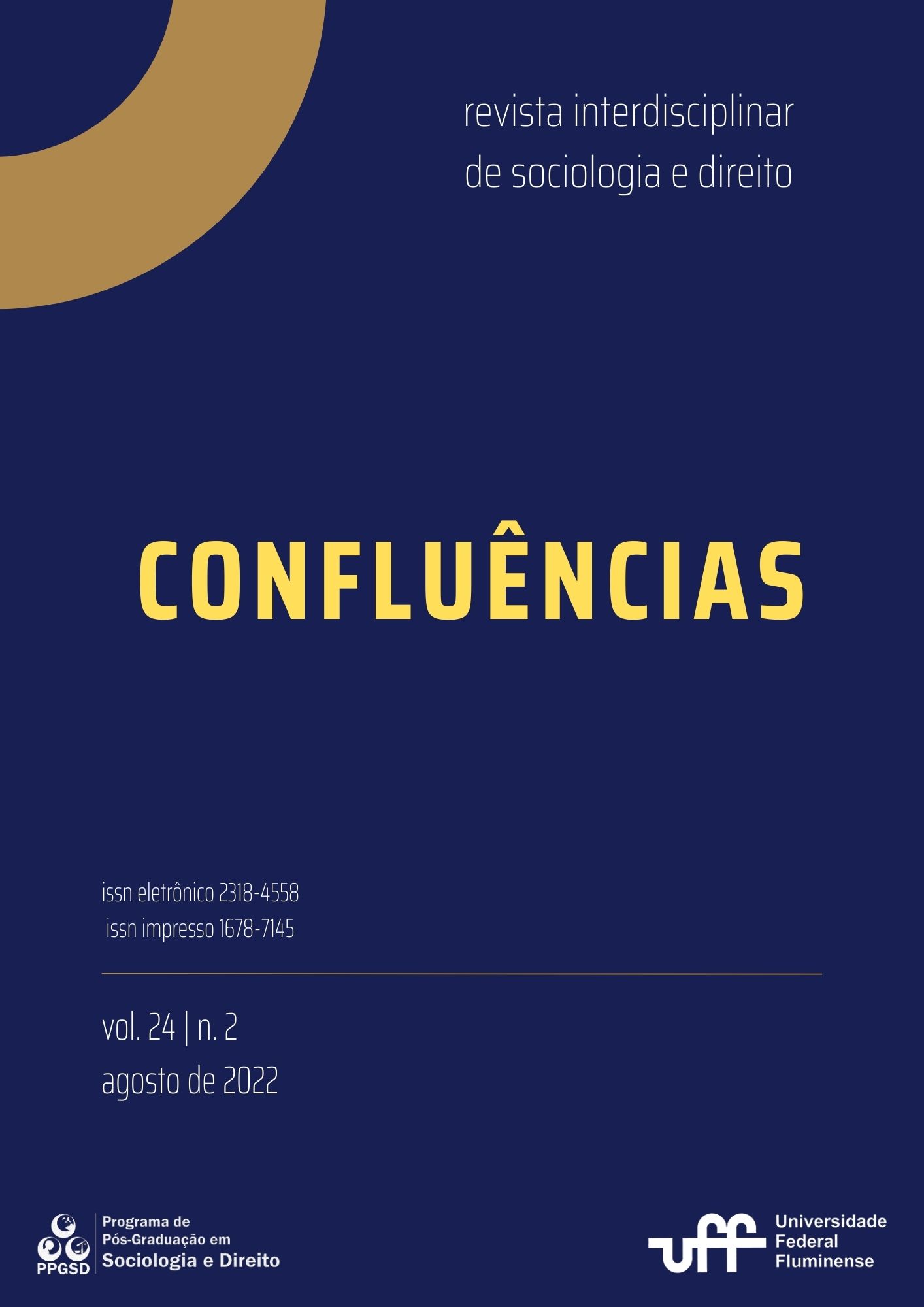BRAZILIAN UNEMPLOYED
the contemporary "vagrants"?
DOI:
https://doi.org/10.22409/conflu.v24i2.54904Abstract
Brazil has an unemployment rate of 11.1% in the first quarter of 2022, according to the Continuous National Household Sample Survey: Conjunctural Labor Market, by the Brazilian Institute of Economics and Statistics (IBGE, 2022). According to the institute, this contingent is made up of 11.9 million unemployed workers. The survey also points out that in the country there are 4.6 million discouraged people. In this context, it is important to mention that for bourgeois society, not working and not having material means of subsistence is a criminal offense. Under the national legislation, it is the criminal misdemeanor of “vagrancy”. Faced with such a scenario, the following reflection is necessary: can the millions of unemployed and discouraged Brazilians be typified, in contemporary times, as vagrants? Such questioning, considering a current resurgence of the Penal State, is what is investigated in this article, looking at the legal and social evolution of the concept and typification of vagrancy. In order to do so, the historical process that underlies the aforementioned misdemeanor is considered through an empirical and interdisciplinary investigation, both internationally and nationally, in a legal-sociological interpretation, contrasting with the current Brazilian conjuncture. In this sense, it is expected that the present study will reflexively contribute to legal science and social transformation, seeking to invalidate the criminalization of vagrancy in a humanist perspective.
Downloads
Downloads
Published
How to Cite
Issue
Section
License
Copyright (c) 2022 Lúcio Mauro Paz Barros

This work is licensed under a Creative Commons Attribution-NonCommercial 4.0 International License.







